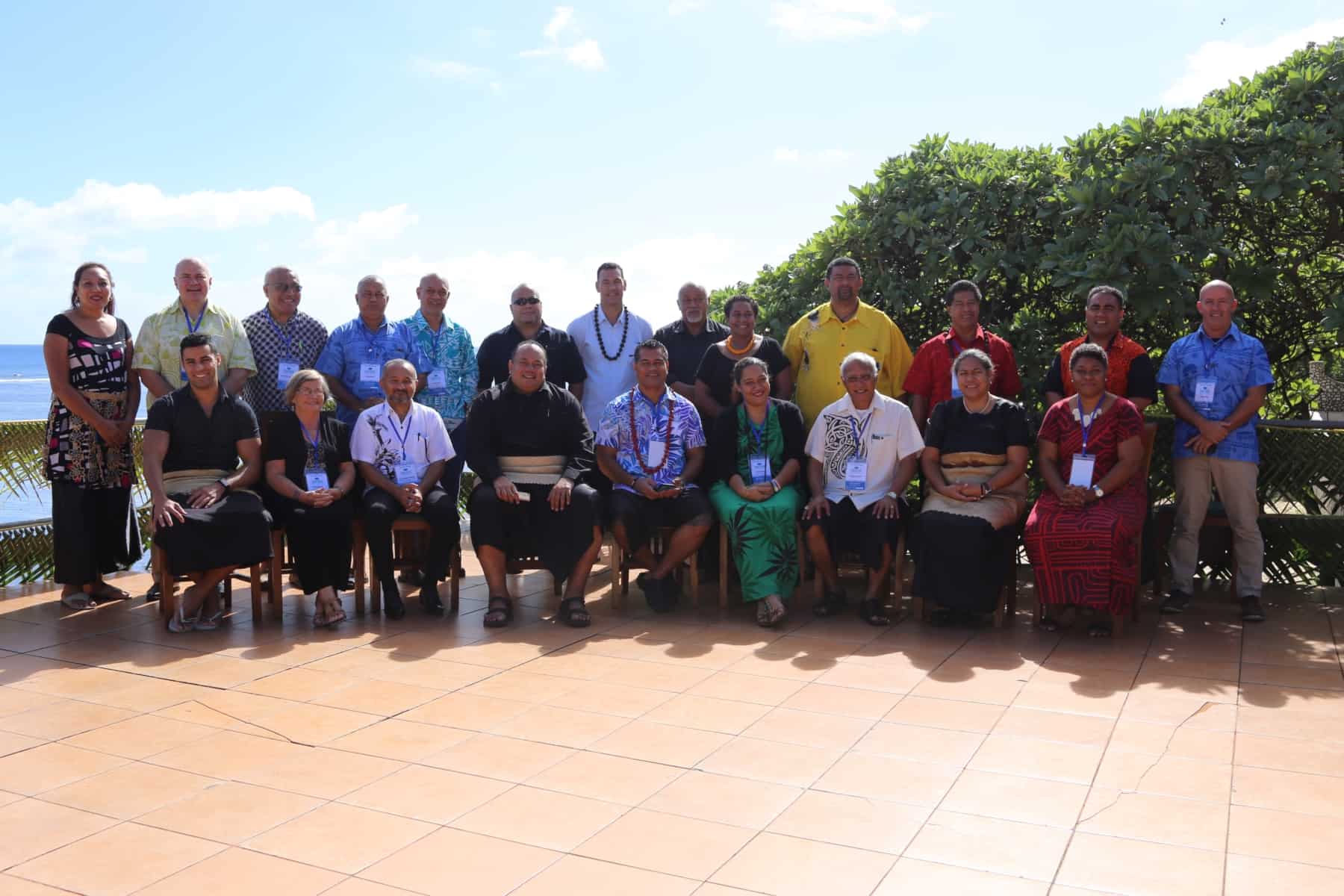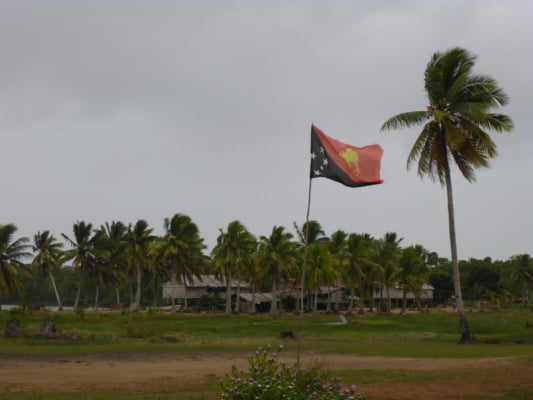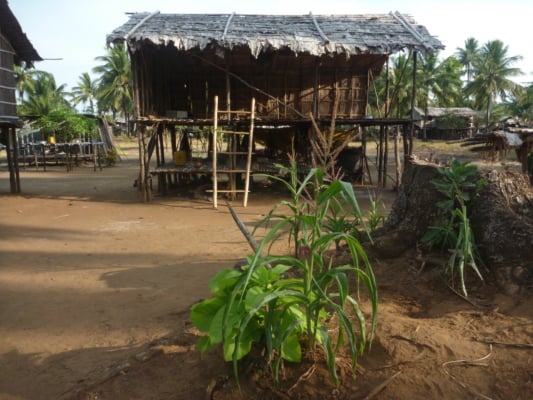Image: GGLC Meeting in Tonga, 2017. Photo Credit IUCN Oceania.
If someone gives you money, should they have a say in how you spend it? Even if they don’t tell you how to spend it, do you have an obligation not to spend it in a way that might upset them? Or if someone is trying to develop capacity or local leadership, do they get to decide what those leaders should do or should they relinquish ownership and control?
These are the conundrums of locally-led development interventions. Such interventions are premised on the understanding that locals are often better placed to achieve positive, lasting change than outsiders would be with the same material resources. Supporting locally-led development accepts that there may be gaps between donor and implementer capability but also acknowledges the possibility that donor approaches and worldviews may distort more organic processes and inhibit positive developmental outcomes.
Most studies of locally-led development have found positive results for donors and interventions based on the local knowledge of the staff charged with designing and implementing projects. In the majority of cases studied, however, there has been a fortunate (or engineered) alignment between the interests and ambitions of the donor and the implementer. But how typical is this? What happens when it is not the case?
In the Pacific, a development coalition offers a case study in how locally-led development operates when there are misalignments between the interests and ambitions of the donor and implementer. A situation which we believe is far more common and informative than assuming everyone will always want the same thing.
The Green Growth Leaders’ Coalition (GGLC) is a fellowship of like-minded individuals who work together to influence policy and programming decisions of states and development organisations in the Pacific Islands region. Since 2016 we have been working with GGLC as action researchers.
Much has been written about the importance and advantages of ‘politically smart’ approaches, but we believe this case offers a prime example of how locally-led development can also just be ‘politically tricky’.
Rather than designing projects, the approach of GGLC is to influence from behind the scenes – engaging in conversations with other decision-makers to shape how policies, programs and projects are designed and implemented. Members are drawn from the upper echelons of politics, regional institutions, the private sector, faith organisations, civil society and beyond. GGLC was funded by the Australian Aid program through the auspices of the Pacific Leadership Program (PLP) from creation in 2012 through to the dissolution of the PLP at the end of 2017.
Fundamental to the logic behind GGLC is that its members have an inside understanding of what developmental reforms are needed in the Pacific, and are well placed to advocate for such reforms. By engaging as a collective they can draw on the knowledge and experience of other members for inspiration and strategy, increasing their scope for influence. This was a fundamental feature of the design, not a happy coincidence. The logic being, if you want change to happen, you need those with position, influence, legitimacy and insight.
Notably, as established leaders whose livelihoods are not connected to their membership, the members of GGLC represent a form of local developmental leadership that does not need to conform to donor expectations of behaviour and priority. This greater balance of power creates what economists would recognise as ‘agency costs’, but contrary to the classic principal-agent problem, the precise aim of locally-led development interventions is to strengthen agency. In our research with GGLC we noted three dilemmas this posed for the donor. We outline these in our recently published paper: the results, priorities and values dilemmas.
The results dilemma springs from what Valters and Whitty call the results agenda. This is where aid and development assistance is judged as successful or not based on the ability of interventions to have positive outcomes relevant to fixed targets. GGLC directly challenges this approach by working to no fixed agenda, preferring to drive change through unattributed influence.
The priorities dilemma relates to differences in opinion of what development issues are most important to address. Although GGLC members did not express having problems with specific activities of the Australian Aid program, their priorities lay in discussing reform measures related to issues such as climate change and how Pacific people can demonstrate greater sovereignty over development planning at multilateral levels, rather than in identifying measurable targets for addressing specific development issues such as those related to education or gender equality. There was little alignment between GGLC and DFAT, both in the prioritisation of each of these issues and in how they should be approached.
The values dilemma flows from the priorities dilemma. GGLC is an example of what Fry and Tarte have labelled the new Pacific diplomacy. This is partly marked by Pacific people becoming more assertive in exercising their autonomy in visioning the developmental futures of the Pacific. Here, worldviews of donor economic interests and Pacific values of sustainability mean that the short term and long term goals of each partner look different, as do their motivations and senses of mission.
It is also important to recognise that not all of these dilemmas were present at all times in the partnership between GGLC and Australian Aid. The partnership lasted six years and only formally ended when the auspicing agency closed. Tensions related to each of the dilemmas arose at times but were generally managed through open and honest communication.
As we discuss in the paper, the results, priorities and values dilemmas cannot be designed away through careful contracting, incentives, and addressing information asymmetries. The dilemmas are fundamentally philosophical, about the purpose of aid and who gets to decide.
But we are not Cassandras. There is a choice and there are ways of walking with eyes wide open. We can imagine creating an adaptable monitoring and evaluation (M&E) framework based on capturing qualitative data that may ease the results dilemma. Equally, engaging a partnership broker to facilitate open and honest conversations between parties will not eliminate differences in priorities but may help partners be aware of such differences. And navigating the values dilemma requires the trust that can only be developed through demonstrating genuine commitment to the partnership on an ongoing basis. Finally, dare we suggest, including trusted action researchers who can track progress, pulse test for less tangible shifts in processes and outputs that cannot be picked up by standard M&E, and communicate openly with both partners also offers a prospective ongoing method for managing these dilemmas.
But fundamentally, at the heart of the three dilemmas is a central knot for donors: curtail the extent to which genuine local leadership can be exercised to ensure alignment with organisational imperatives, or be sufficiently committed to true local leadership to accept that this may result in results, priorities and values that at times run counter to those of the donor. Do not fudge this.
The full paper, ‘Navigating the dilemmas of politically smart, locally led development: the Pacific-based Green Growth Leaders’ Coalition’ appears in Third World Quarterly.











